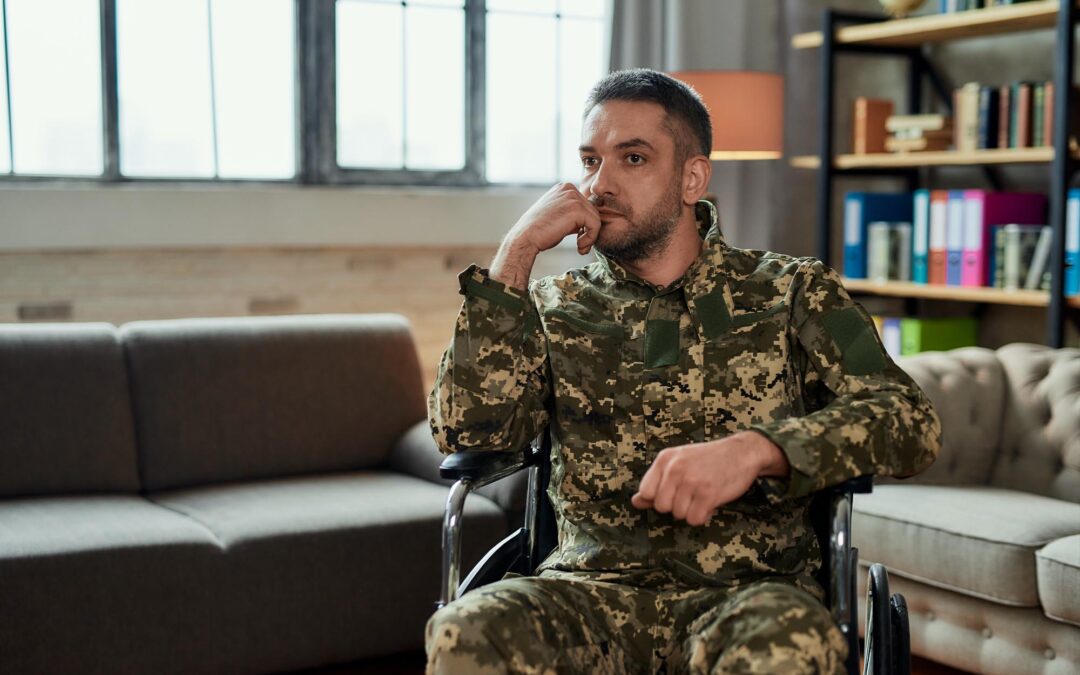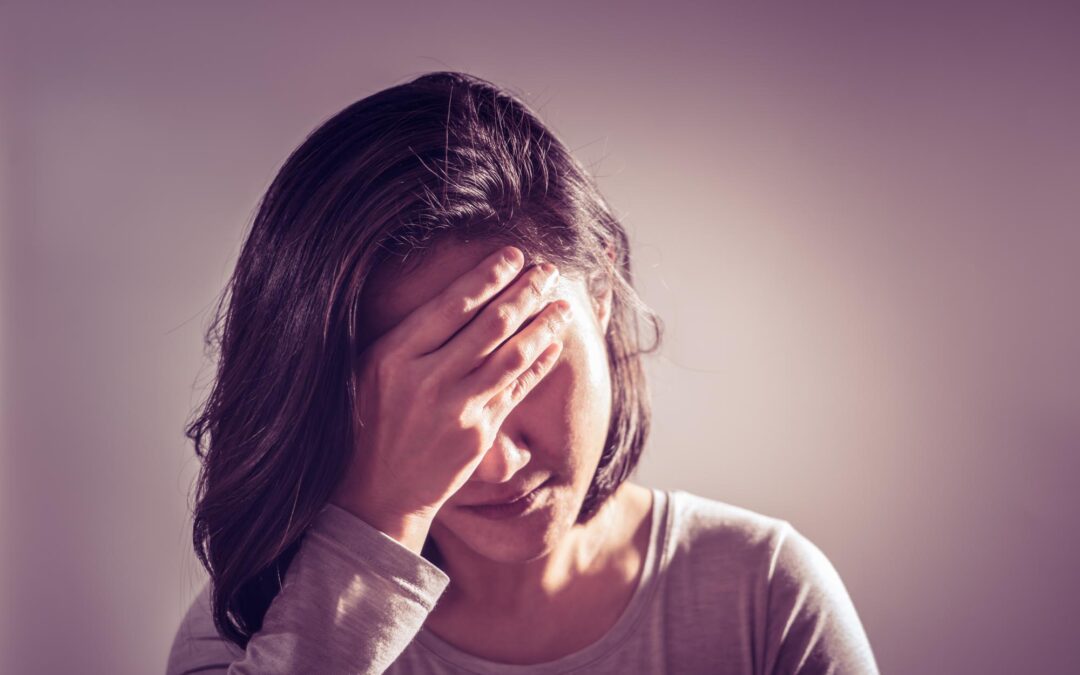Understanding Anxiety and Depression
Addressing Anxiety and Depression in Recovery: Anxiety disorders and depression are two of the most common mental health challenges in the United States. These conditions can show up in different ways, each with its own characteristics and effects on daily life.
Anxiety Disorders Include:
- Generalized Anxiety Disorder (GAD) – persistent worry about everyday situations
- Panic Disorder – unexpected, intense fear episodes
- Social Anxiety Disorder – fear of social interactions
- Specific Phobias – intense fear of particular objects or situations
Depression Types:
- Major Depressive Disorder (MDD) – severe episodes lasting two weeks or more
- Persistent Depressive Disorder – ongoing low mood for two years or longer
- Seasonal Affective Disorder – depression tied to seasonal changes
Recent statistics reveal that anxiety disorders affect 40 million U.S. adults, while 21 million experience major depressive episodes annually. These numbers highlight a significant public health concern requiring immediate attention.
Common Symptoms You May Experience:
Anxiety Signs:
- Racing thoughts and excessive worry
- Rapid heartbeat and sweating
- Sleep disturbances
- Difficulty concentrating
- Physical tension and restlessness
Depression Indicators:
- Persistent sadness or emptiness
- Loss of interest in activities
- Changes in appetite or weight
- Fatigue and low energy
- Feelings of worthlessness
- Thoughts of death or suicide
These symptoms can vary in intensity and duration, impacting your ability to work, maintain relationships, and enjoy daily activities. Recognizing these signs serves as the first step toward seeking appropriate help and support. For those struggling with anxiety disorders, seeking professional assistance such as anxiety treatment in Massachusetts can be a crucial step towards recovery.
The Connection Between Mental Health and Addiction
Mental health conditions and substance use disorders are closely linked. When anxiety or depression is not treated, many people turn to drugs or alcohol as a way to cope. This attempt to numb emotional pain creates a harmful cycle:
- Temporary Relief: Substances provide short-term relief from anxiety and depression symptoms
- Increased Tolerance: Over time, the body needs more substances to achieve the same effect
- Worsening Symptoms: Mental health symptoms become worse during withdrawal periods
- Dependency Development: The brain starts relying on substances to feel normal
Higher Risk for Substance Use Disorders
Research shows that individuals with anxiety or depression are twice as likely to develop substance use disorders compared to those without these mental health conditions.
This connection creates a cycle that perpetuates both issues:
- Mental health symptoms lead to substance use
- Substance use worsens mental health symptoms
- Withdrawal from substances intensifies anxiety and depression
- The cycle continues with increasing severity
Changes in Brain Chemistry
As this cycle continues, your brain chemistry changes, making it harder to feel pleasure or manage stress without substances. Each episode of anxiety or depression can become a potential trigger for relapse, emphasizing the importance of comprehensive treatment that addresses both conditions at the same time.
Need for Specialized Care
The close relationship between mental health and addiction requires specialized care that targets the underlying causes of both conditions. Treatment plans must take into account how each condition affects the other in order to effectively break the cycle.
Integrated Treatment Approaches for Dual Diagnosis
Successful recovery requires addressing both mental health and substance use disorders simultaneously through integrated treatment approaches. This comprehensive strategy recognizes that each condition influences the other, making separate treatments less effective.
Evidence-Based Therapies for Dual Diagnosis:
Cognitive Behavioral Therapy (CBT)
- Identifies negative thought patterns
- Develops practical coping strategies
- Challenges distorted beliefs about substance use
- Creates new behavioral responses to anxiety triggers
Dialectical Behavior Therapy (DBT)
- Builds emotional regulation skills
- Teaches mindfulness practices
- Improves interpersonal effectiveness
- Enhances distress tolerance
These therapeutic approaches work together to create a strong foundation for recovery. CBT helps you understand the connection between thoughts, feelings, and behaviors, while DBT provides concrete skills to manage emotional intensity and reduce impulsive reactions.
Your treatment plan might include:
- Individual therapy sessions
- Group therapy meetings
- Medication management when appropriate
- Regular progress assessments
- Skill-building workshops
For those dealing with severe emotional issues, such as depression, specialized programs like the Depression Treatment in Massachusetts offered by Advanced Therapy Center can be beneficial. These programs provide comprehensive outpatient treatment and psychiatric day treatment for depressive disorders.
Research shows integrated treatment leads to better outcomes, including:
- Reduced substance use
- Improved mental health symptoms
- Enhanced quality of life
- Stronger recovery maintenance
- Lower relapse rates
Coping Strategies for Managing Anxiety and Depression During Recovery
Recovery requires practical tools to deal with emotional challenges. You can develop resilience through specific stress management techniques that help you stay grounded during tough times.
Essential Coping Mechanisms:
- Deep breathing exercises (4-7-8 technique)
- Progressive muscle relaxation
- Mindfulness meditation
- Grounding exercises using the 5-4-3-2-1 method
- Body scan meditation
Creating a structured daily routine brings stability to your recovery journey. Your routine might include:
- Fixed wake-up and bedtime hours
- Regular meal schedules
- Dedicated exercise periods
- Specific times for therapy or support group meetings
- Planned relaxation breaks
These routines act as anchors during emotional turbulence, providing predictability when anxiety or depression intensifies. Research shows that maintaining consistent daily patterns helps regulate mood and reduces stress triggers.
Quick Grounding Exercise:
When anxiety strikes, place both feet firmly on the ground Focus on five things you can see Notice four things you can touch Identify three things you can hear Acknowledge two things you can smell Be aware of one thing you can taste
Incorporating these strategies into your daily life creates a foundation for managing emotional challenges. Physical activities like yoga or walking can complement these techniques, offering additional outlets for stress relief while supporting your recovery process.
The Role of Support Systems in Recovery from Co-Occurring Disorders
Building a strong support network is crucial during your recovery journey. It can provide you with the help and encouragement you need to overcome challenges. Your support system may include:
- Family members who understand your struggles and offer emotional support
- Trusted friends who maintain sobriety and promote healthy lifestyle choices
- Sober peers from recovery programs who have similar experiences
- Mental health advocates who can provide guidance and resources
Community Resources for Support
In addition to personal connections, community resources can also enhance your support network. These specialized programs and services cater to individuals with co-occurring disorders:
- Local NAMI chapters offering educational workshops and support groups
- Dual Recovery Anonymous (DRA) meetings that combine addiction and mental health support
- Crisis hotlines staffed by trained professionals available 24/7
- Online support communities providing anonymous connection and understanding
Functions of Your Support Network
Your support network serves several important purposes in your recovery:
- Recognizing early warning signs of anxiety or depression
- Holding you accountable for maintaining sobriety
- Providing practical assistance during difficult times
- Creating safe spaces for open conversations about mental health
Engaging with these support systems can help reduce feelings of isolation, which often trigger both anxiety and substance use. Regular interactions with empathetic individuals can normalize your experiences and validate your emotions. These connections also create opportunities for shared learning, where you can gain insights from others’ coping strategies while contributing your own knowledge to the community.
For instance, coping with depression can be made easier with the right support options, such as therapies and support groups available in Medford, MA. It’s also worth noting that friendship plays a significant role in our mental health journey, providing essential emotional nourishment. Moreover, knowing how to support someone with a mental health problem can be invaluable in fostering these relationships.
Lastly, recognizing the importance of professional help in managing co-occurring disorders is crucial. Research indicates that support systems are vital in the recovery process, underscoring the necessity of both personal and professional networks in overcoming these challenges.
Regular Check-ins with Mental Health Professionals: A Key Component for Lasting Recovery
Mental health professionals play a vital role in your recovery journey by providing specialized expertise in managing dual diagnosis conditions. These professionals understand the intricate relationship between anxiety, depression, and substance use disorders, enabling them to offer targeted interventions and support.
Key Benefits of Regular Professional Check-ins:
- Continuous assessment of medication effectiveness
- Early identification of potential triggers or warning signs
- Refinement of coping strategies based on real-world experiences
- Professional guidance during challenging phases of recovery
Your treatment plan isn’t static—it evolves with you. Regular sessions allow your mental health provider to track your progress and make necessary adjustments to your treatment approach. These modifications might include:
- Adjusting medication dosages
- Introducing new therapeutic techniques
- Modifying behavioral interventions
- Incorporating additional support services
Mental health professionals also help you develop practical skills for managing anxiety and depression symptoms:
- Stress management techniques tailored to your specific triggers
- Communication strategies for expressing needs to family and support systems
- Crisis planning to prevent relapse during challenging periods
- Goal-setting approaches that align with your recovery journey
Professional guidance ensures you’re not just maintaining sobriety but building a foundation for long-term mental wellness. Your mental health team can identify subtle changes in your condition and provide interventions before small challenges become significant obstacles.
If you’re seeking personalized care to help manage and overcome mental health challenges, consider reaching out to Advanced Therapy Center. Their team is dedicated to leading you towards a healthier and more fulfilling life.
Creative Expression as a Tool for Resilience in Recovery from Co-Occurring Disorders
Creative expression unlocks powerful healing pathways in recovery from co-occurring disorders. Your journey through recovery gains depth and dimension through artistic outlets that speak to your unique emotional landscape.
Journaling Benefits:
- Tracks emotional patterns and triggers
- Provides a safe space for processing difficult feelings
- Creates a personal record of growth and progress
- Helps identify early warning signs of anxiety or depression
Visual Arts and Recovery:
- Painting or drawing releases emotions without words
- Sculpture work grounds you in the present moment
- Photography helps capture positive moments and memories
- Collage-making allows expression of complex feelings
These creative practices build neural pathways that strengthen your resilience against mental health challenges. When words feel inadequate, art becomes your voice. You might discover that sketching helps calm racing thoughts during anxious moments, or that keeping a gratitude journal lifts your mood during depressive episodes.
Art therapy groups offer structured creative environments where you can connect with others who understand your journey. These shared creative spaces foster community while providing healthy outlets for processing emotions that might otherwise trigger substance use.
Your creative practice becomes a reliable companion in recovery – available whenever you need to express, process, or simply breathe through challenging moments. Each artistic endeavor builds your emotional toolkit, making you better equipped to navigate the complexities of dual diagnosis recovery.
Embracing a Holistic Approach to Recovery from Anxiety, Depression, and Addiction
Your path to recovery requires a comprehensive strategy that nurtures your whole being. A holistic approach integrates:
- Physical wellness through nutrition, exercise, and sleep hygiene
- Mental health support via therapy and counseling
- Emotional healing through mindfulness and stress management
- Social connection with support groups and healthy relationships
- Spiritual growth based on your personal beliefs and values
Research shows that addressing mental health and addiction simultaneously leads to better outcomes. You’ll find greater success when you combine traditional treatments with complementary practices like:
- Yoga and meditation
- Acupuncture
- Massage therapy
- Art and music therapy
- Nature-based activities
Your recovery journey is unique. Working with healthcare providers who understand the interconnected nature of anxiety, depression, and addiction helps create a personalized treatment plan that resonates with your specific needs and goals.




